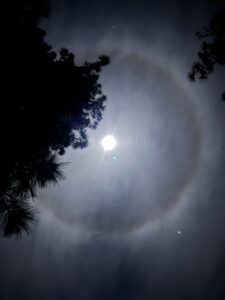
A full moon with a moon ring, photo by Tori
Space, a place so vast and unknown that there are seemingly endless opportunities for exploration and learning. In this blog post, we’ll explore some of the things we have learned through space exploration and how it has helped up make advancements here on earth.
We have come a long way in space exploration over the last 55 years since that first landing on the moon. Space exploration began in 1957 when the Soviet Union launched the first artificial satellite, the Sputnik 1, marking the beginning of the space race between America and Russia to get the first man on the moon. Four years after the launch of Sputnik, Russia beat us to the punch again by sending astronaut Yuri Gargarin as the first human to orbit Earth. The United States ended up beating them to the finish line in the end though, by landing the Apollo 11 on the moon with astronauts Neil Armstrong, Buzz Aldrin, and Michael Collins in July of 1969. (Loff, 2024)
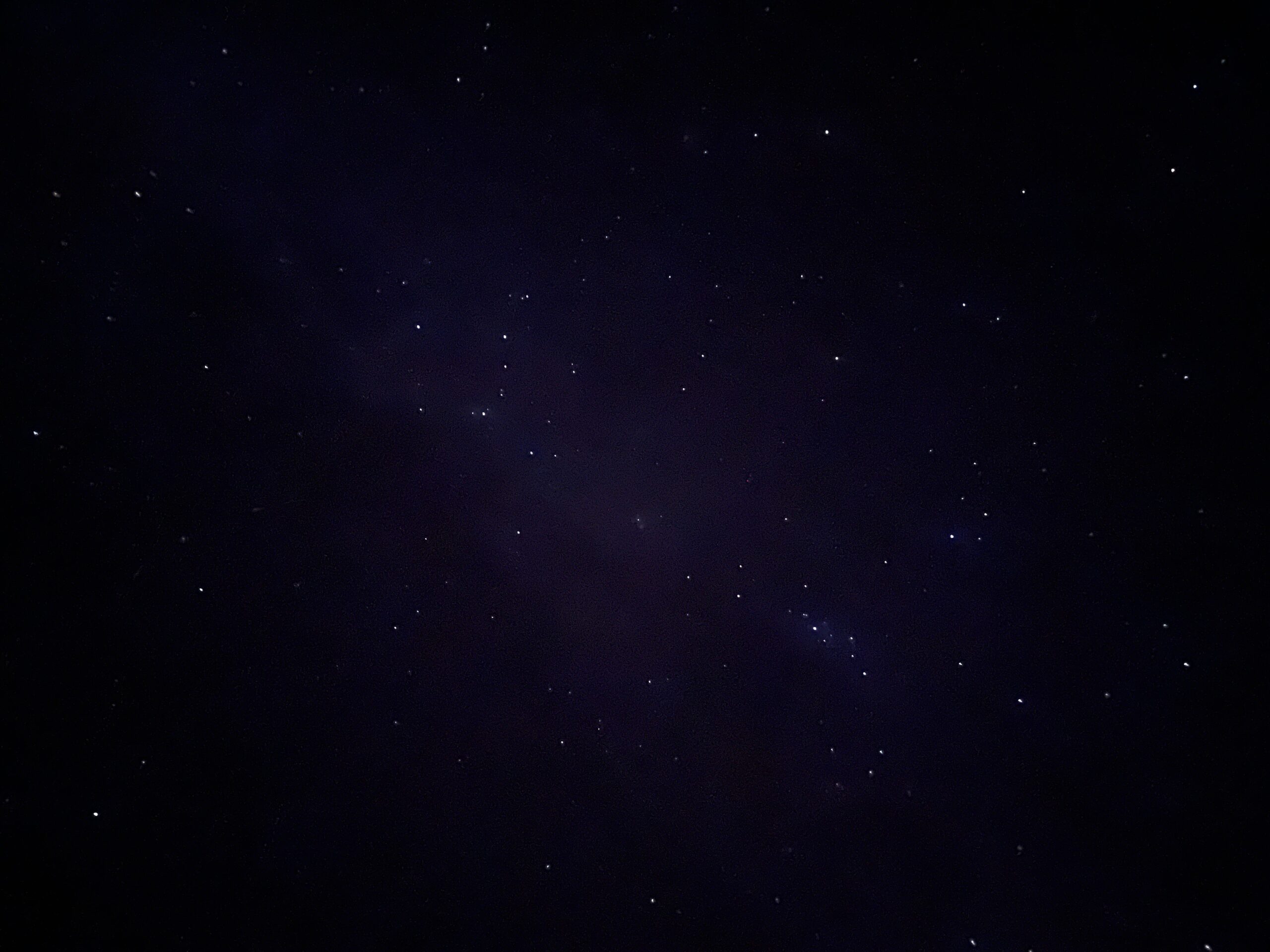
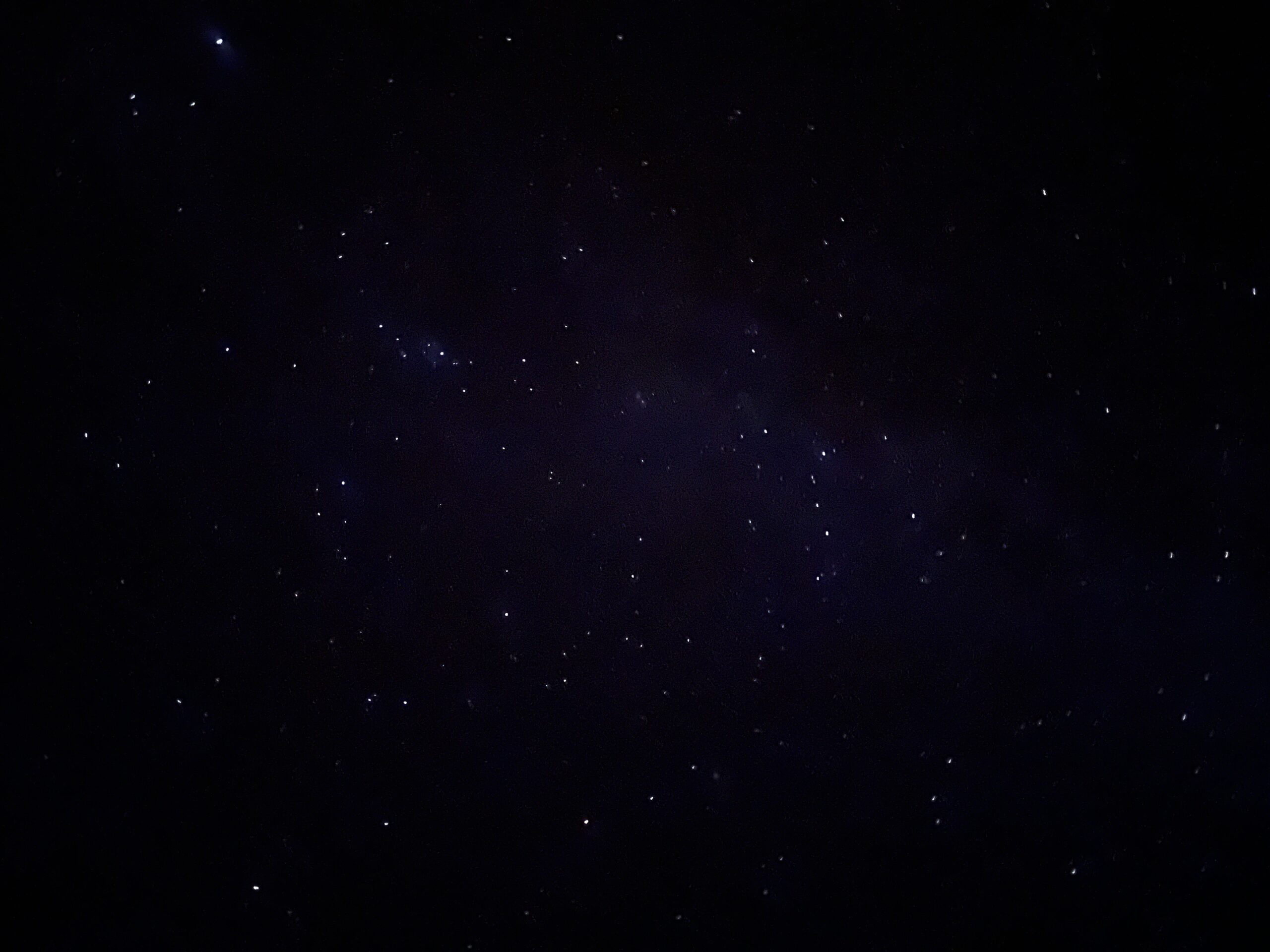
Stars in the night sky over High Trails, photos by Tori
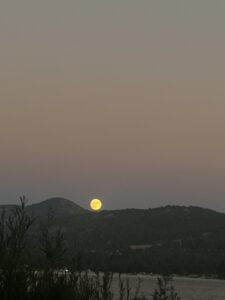
Moon rise over High Trails, photo by Tori
Why do we explores space? And what are the benefits of it?
Space exploration plays a huge role in advancing our scientific understanding of space and how it works. It allows us to gather data about different celestial bodies to understand the universe we exist in on a better level and discover some pretty cool things we may not have known about otherwise. We also gain a new perspective of studying Earth and the solar system we live in.
As well as advancing our understanding, space exploration also provides benefits to life on Earth with advancements in health and medicine, the economic system, and technology to name a few. Sometimes astronauts need medical attention while they’re up among the stars, but they can’t exactly go to the doctors. Thus, the invention of telemedicine, which provides medical care to rural areas and other locations that are lacking resources. (Asrar 2022) This was a big advancement in medicine that we’re able to use here on Earth as well. A great example of how space exploration has advanced technology here on Earth is the Global Positioning System or GPS. (Deel, 2024) GPS relies on satellite navigation to provide location information. While originally created for space missions, GPS has now become an integral part of our daily lives. The growth of the space travel/exploration industry has also contributed to the economic system by creating jobs for people at places like NASA, and other government agencies. (Deel, 2024)
What have we discovered and learned in exploring space
Exploring space has allowed us to discover some fascinating and mind blowing things about our solar system and the universe we exist in. The Kepler telescope, which was invented in 2009, is an orbiting telescope that’s main mission is to search for habitable planets in other parts of the universe. Kepler is such a powerful telescope that it is capable of discovering a thousand new planets at a time. It has helped lead to major advancements in our understanding of the universe as it naturally exists. Lightning and electrical storms have been discovered on other planets like Mars and Saturn. There has also been evidence of much more powerful ones than any like the ones we experience on Earth in the vast reaches of space. (Sackman, 2024) Based on data received from the Kepler telescope, we’ve discovered that every star has at least one planet orbiting it, which also gives us an idea of how many planets may also exist out there. (Sackman, 2024) In that, scientists estimate that there are likely as many as 40 billion earth sized and earth like planets in the Milky Way alone. (Sackman, 2024) With the help of the Kepler telescope, astronomers have estimated that about 11 billion of these earth-like planets orbit stars incredibly similar to our own sun. (Sackman, 2024) Now, while black holes have had a long-standing presence in media like movies, comics, books, etc., they have actually only recently been discovered in reality. Up until 1971, when the first black hole was truly detected by scientists, they had only been a thing of theory. (Sackman, 2024) Due to this discovery, we now know that black holes are actually invisible because they swallow everything in their path, including the light needed to spot them.
As mankind is prone to naturally wanting to explore the unknown, we are drawn to the cosmos. Luckily, there is still so much to be explored as the universe is vastly larger than we could ever wrap our heads around
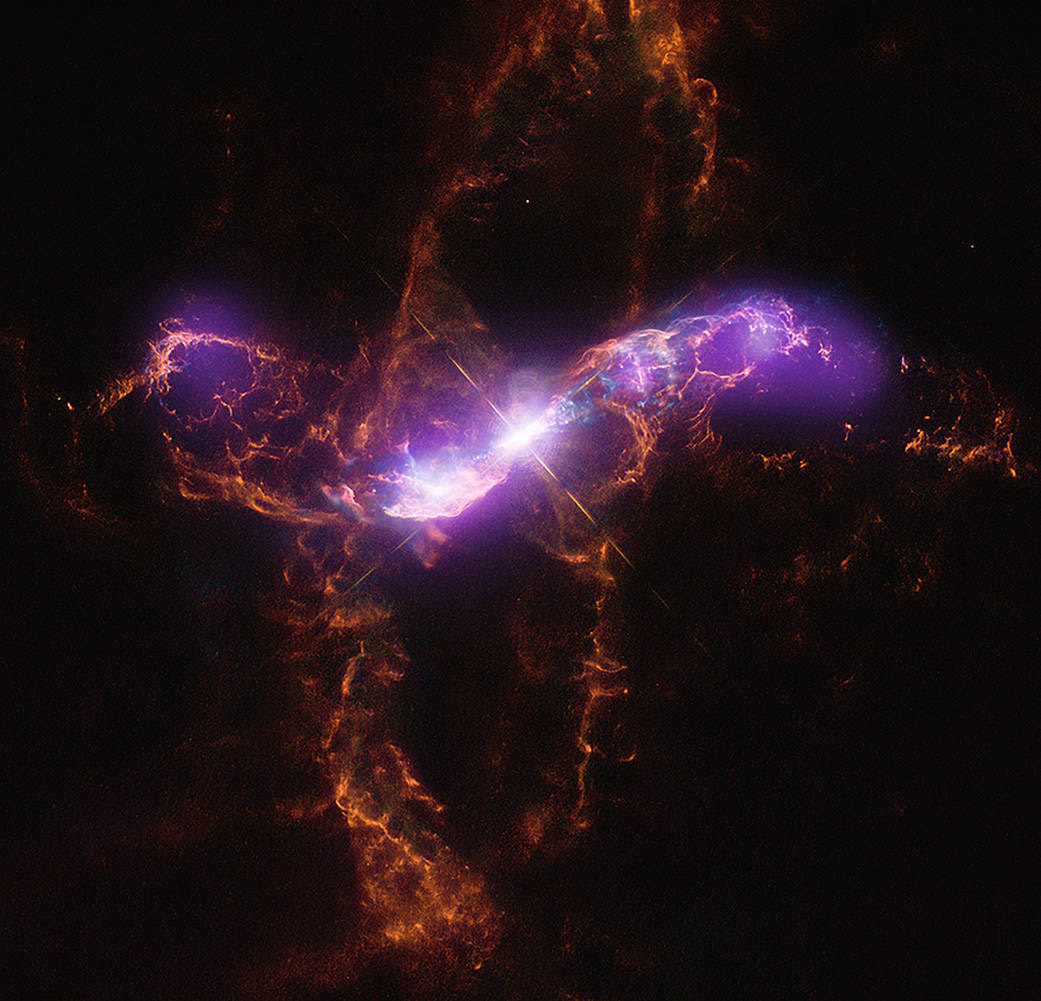
Purple space “lightning”, https://www.space.com/white-dwarf-red-giant-space-lightning-photo
1. Sackman, J. (2024, December 4). 10 mindblowing discoveries of the universe. HowStuffWorks. https://science.howstuffworks.com/innovation/10-mindblowing-discoveries-of-the-universe.htm
2. Deel, G. L. (2024, May 3). Why should we explore space? What are the benefits for us? American Public University. https://www.apu.apus.edu/area-of-study/math-and-science/resources/why-should-we-explore-space/
3. Loff, S. A. (2024, January 5). Apollo 11 Mission Overview – NASA. NASA. https://www.nasa.gov/history/apollo-11-mission-overview/
4. Asrar, F. M., Saint-Jacques, D., & Williams, D. (2022). Outer space assets offer benefits to health care. Canadian Family Physician, 68(11), 797–798, 800. https://doi.org/10.46747/cfp.6811797
At High Trails Outdoor Science School, we ask our instructors to write about elementary outdoor education, teaching outside, learning outside, our dirty classroom (the forest), environmental science, outdoor science, and all other tree-hugging student and kid loving things that keep us engaged, passionate, driven, loving our job, digging our life, and spreading the word to anyone whose attention we can hold for long enough actually to make it through reading this entire sentence. Whew…. www.dirtyclassroom.com

Comments are closed.